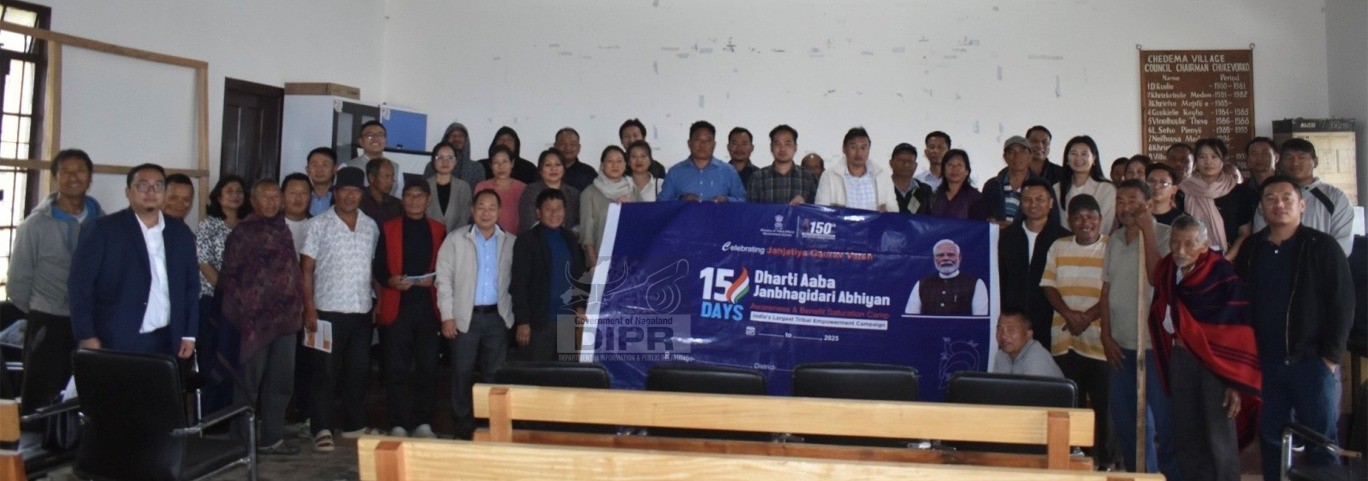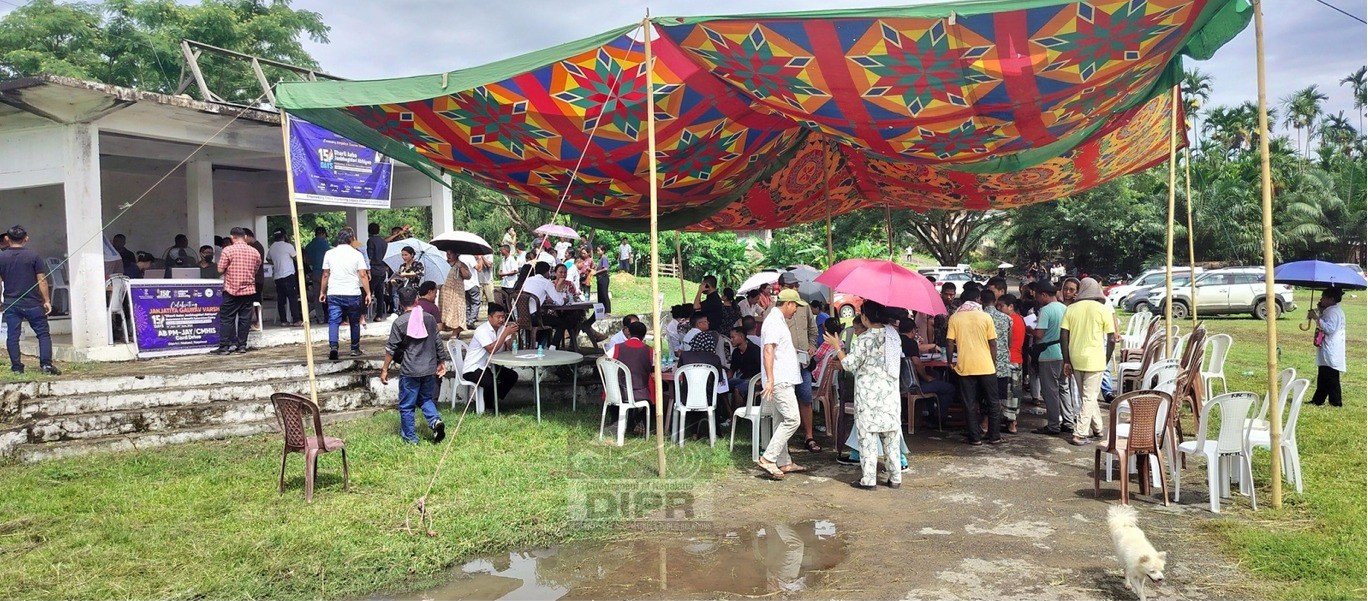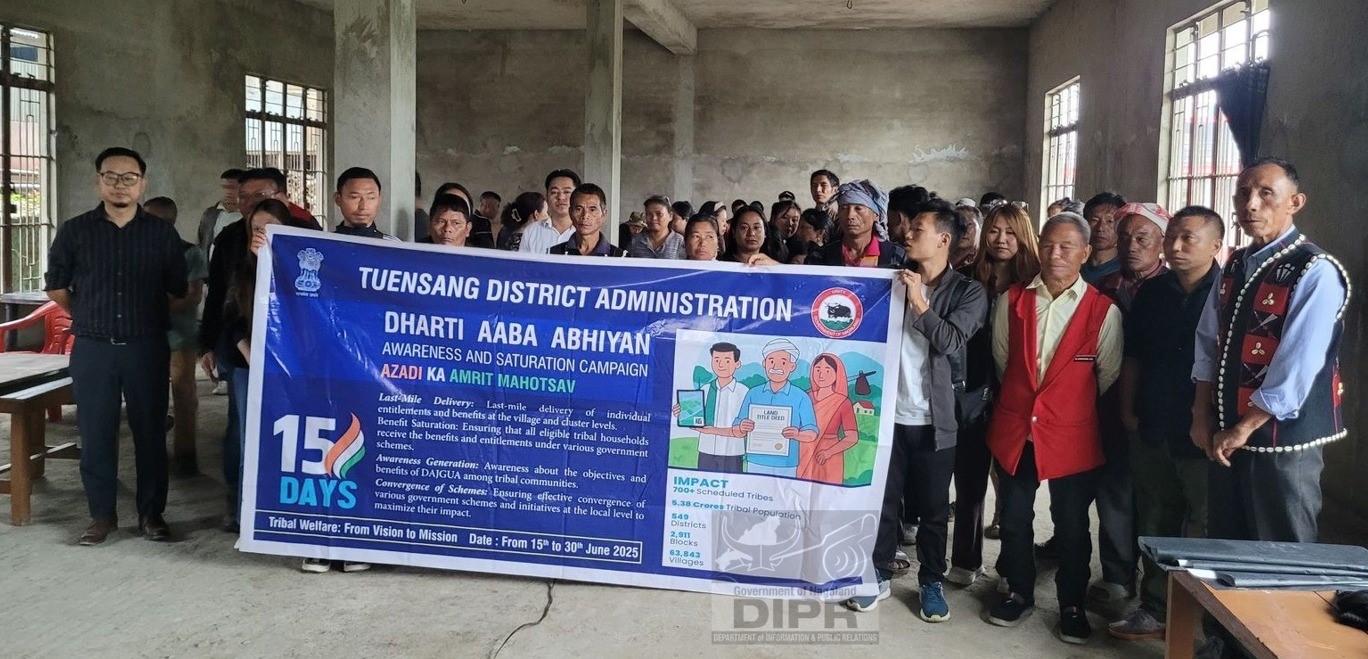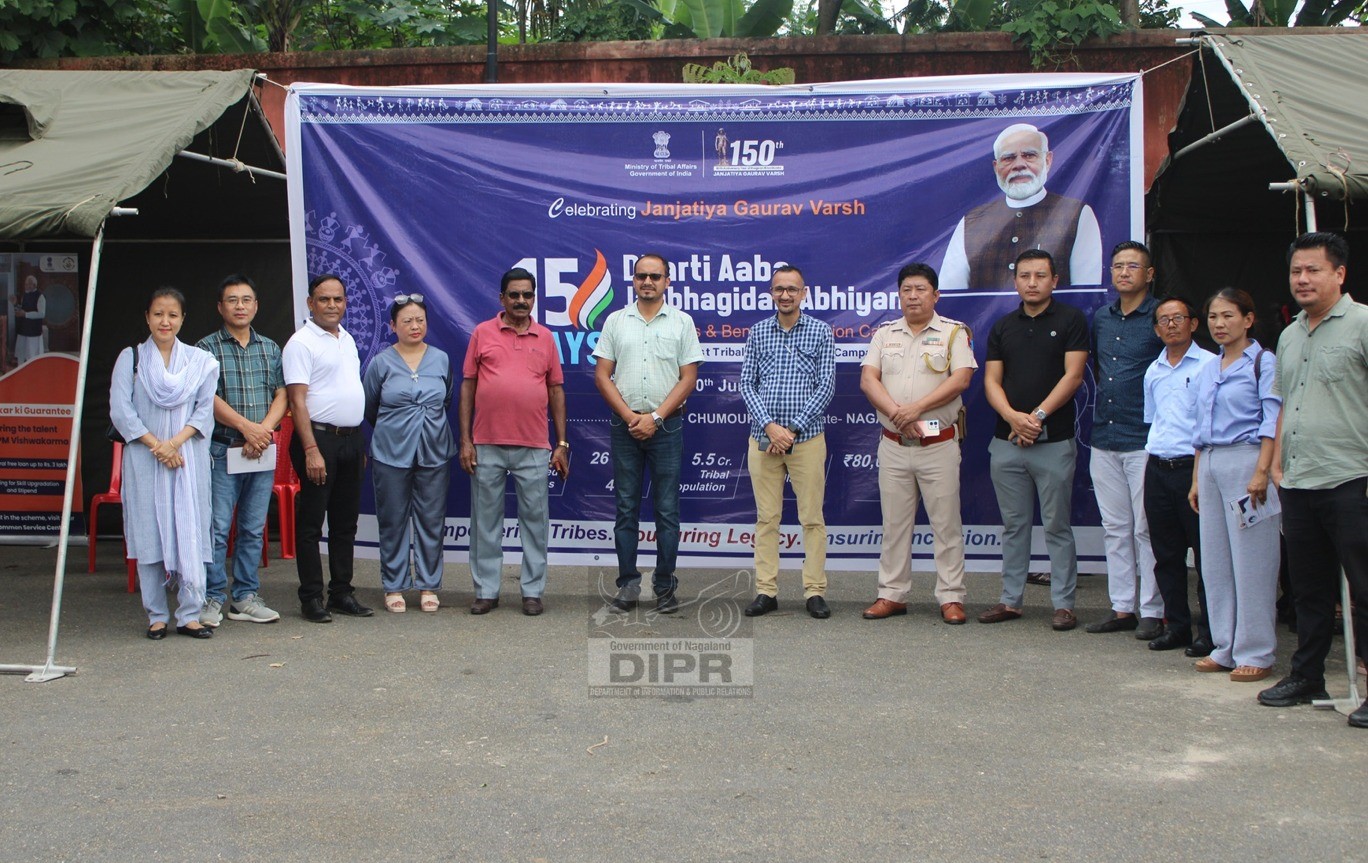Project for creating model GP clusters in collaboration with Wokha District Administration, District Skill Committee (DSC), District Rural Development Agency (DRDA), and Nagaland State Rural Livelihood Mission, Wokha organized a one-day training programme on localization of Sustainable Development Goals (SDGs), GPDS, PRI-SHGs convergence on 29th September 2022 at Deputy Commissioner’s conference hall, Wokha.
BNO-GPDP, Tushimanen said Gram Panchayat Development Plan (GPDP) is the development plan of the village prepared through a participatory process involving all stakeholders matching people’s needs and priorities with available resources. He added under Article 243G, the Constitution mandates a plan at the village level for economic development & social justice and the implementation of schemes to fulfill those goals.
On the collection of data, Manen said the primary objective of preparation of GPDP is to identify and formulate ways of addressing the development needs of the GP, getting first-hand information about the issues related to health, education, livelihoods, availability of amenities, services and fulfillment of rights and entitlements of marginalized sections, local infrastructure, etc., are very important.
Area Co-ordinator SISD, NRLM, H. Wophyomo while sharing on the topic of Panchayati Raj Institute- Self Help Group (PRI-SHG) convergence and Village Poverty Reduction Plan (VPRP). He added that VPRP guarantees the representation of demands from different sections of the community, including demands from SHG households and of other vulnerable sections outside the SHG fold, fair, transparent, and participatory plan, and serves as a sub-plan for preparing GPDP. Further, he stated that VPRP is the bottom-up plan preparation for addressing the needs of the community.
Giving an introduction to Sustainable Development Goals (SDGs), Markose said the SDGs were set up in 2015 by the United Nations General Assembly and are intended to be achieved by 2030, adding the 2030 Agenda is “a plan of action for people, planet and prosperity”. The 2030 Agenda contains 17 Sustainable Development Goals (SDGs) and 169 targets and 193 countries, including India.
MGNF, Ministry of Skill Development, Anuranjan Singh said that the main objective of Sustainable Economic Development, Economic Growth is for creating an economy that is sustainable and growing in the right direction. This objective focuses on a contribution by humans towards protecting and enhancing the natural environment, by minimizing pollution, and waste and also working towards reducing the global carbon footprint. Sharing on “Social Inclusion”, he said this objective focuses on providing the facility of housing for future generations and assisting in creating healthy, strong, and vibrant global communities.
The one-day training programme is focused on creating model GP clusters for the five village functionaries under the Wokha district namely, Wokha village, Longsa, Longsachung, Riphyim Old, and Humtso village.
(DPRO & IA, Wokha)





